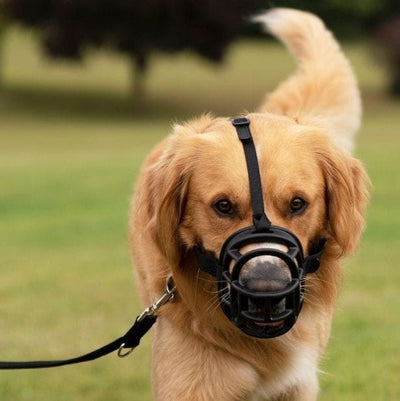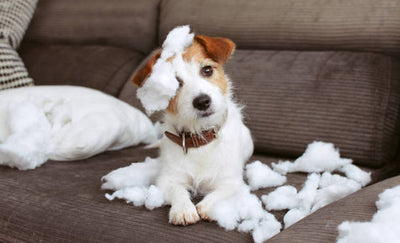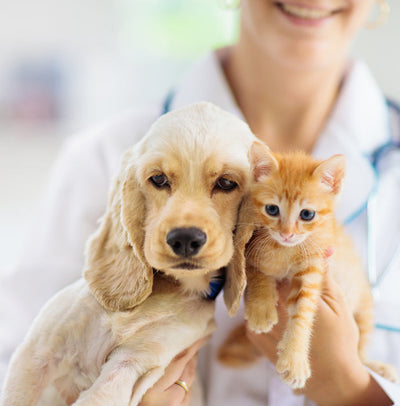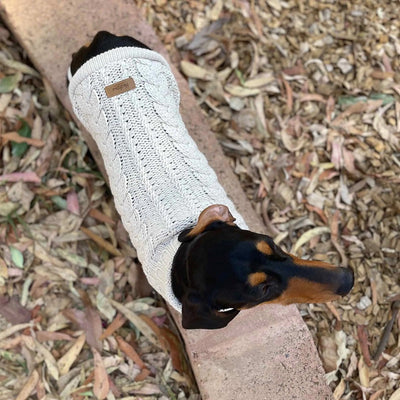When we are thinking of bringing a new puppy or kitten home, we have visions of them sitting on our knee, sleeping on our bed and lying in the sun. What we don’t have in mind is the cat urinating in the washing basket or the dog lifting its leg on the furniture. This type of behaviour from our pets can be frustrating and often we don’t seek assistance with it because we feel embarrassed that it has been occurring. The good news is, with a little time and patience in most cases it can be solved, and we can go back to living the life with our pet that we’d been hoping for.
Reason 1- Undesexed pets
Its an obvious one, but undesexed male pets are more likely to urinate around the house. Urine is a way that male cats and dogs mark territory to let other competitors know that this is their area and that they are not welcome. Desexing your pet is the most effective way to prevent this from occurring. Your vet will be able to let you know a safe age for your pet to be desexed. Keep in mind that these traits can carry on for a few months after desexing whilst the hormone levels in your pet decrease.
Reason 2 -Traces of old urine
Pets are drawn back to urinating in the places they have gone previously. Often people clean the urine up with household cleaners and although you may not be able to smell the urine, your pet with up to 6 times the number of smell receptors compared to your nose certainly can. This is because uric acid crystals remain behind after cleaning, and these reactivate with the presence of moisture in the air. To ensure all traces of urine are removed it's best to use one of the many enzyme-based urine removing products. These products use a combination of enzymes to breakdown the crystals which greatly decreases the chance of your pet urinating in that spot again. You should use this product no matter the surface type, whether it's wood, tile, carpet or concrete.

Reason 3 - Cat stress
People have many opinions on why cats urinate outside the tray and they include - the tray is too small or that the cat wasn’t toilet trained as a kitten. Aside from certain medical conditions, cats that urinate outside the tray are stressed and it doesn’t matter whether you think they have a stress-free life, cats can still be stressed.
Common reasons for stress include moving house, multiple cats in the house (even if they have been together for a while) new children or partners in the house, renovations or other cats hanging around the house. Other signs of stress behaviour include excessive scratching of the furniture and overeating.
If you have multiple cats, then you need a tray for each cat plus a spare tray and preferably in different rooms. Ensure that any spills are cleaned up quickly using an enzyme-based spray and use one of the synthetic pheromone products that help stressed cats feel more relaxed.
Reason 4 - Sending a mixed message of where to go
Kittens are toilet trained by the Queen (that’s the mother cat) by 8 weeks of age, but pups can take between 12-16 weeks of age to be fully toilet trained. Toilet training is relatively easy, but it takes consistency and a little patience.
Pups need to be contained in a relatively small area for sleeping in the early weeks, a laundry is good place to start as access to large areas (think your lounge room) doesn’t encourage the puppy to learn to hold on. They should be taken out after eating and after waking up, but there is no need to take them out in the middle of the night as this can be habit forming for them and plays havoc with your sleep. Take the puppy to the same spot each time, that can be grass outside or if it's indoors on a disposable puppy pad. You could look to install a pet door to make this process easier. Always have a backup of puppy pads on hand when toilet training. Ideal for when you can't be there & these will save a lot of cleaning! These are handy to have on hand after toilet training as well especially during wet weather.
A pet potty is another consideration when it comes to toileting & dogs. These are great for apartment living, caravans and traveling.
Practice positive reinforcement
Be patient and wait for your puppy to go and when it does, give treats and lots of praise. Yelling or punishing a puppy who makes a mistake will not help speed up the process, it only hinders it. Include the entire family in this as it will help to reinforce the pets toilet training and will help share the load. Acceptance of mis-haps is key in managing minor set backs along the way! Ensure any accidents are cleaned up with the enzyme spray and your pup will be toilet trained before you know it.
For further information, call in & see us in the store, or email us: admin@weknowpets.com.au
4/72-76 Station St Bowral NSW 2576
PH: 024862 1175
© weknowpets 2021






